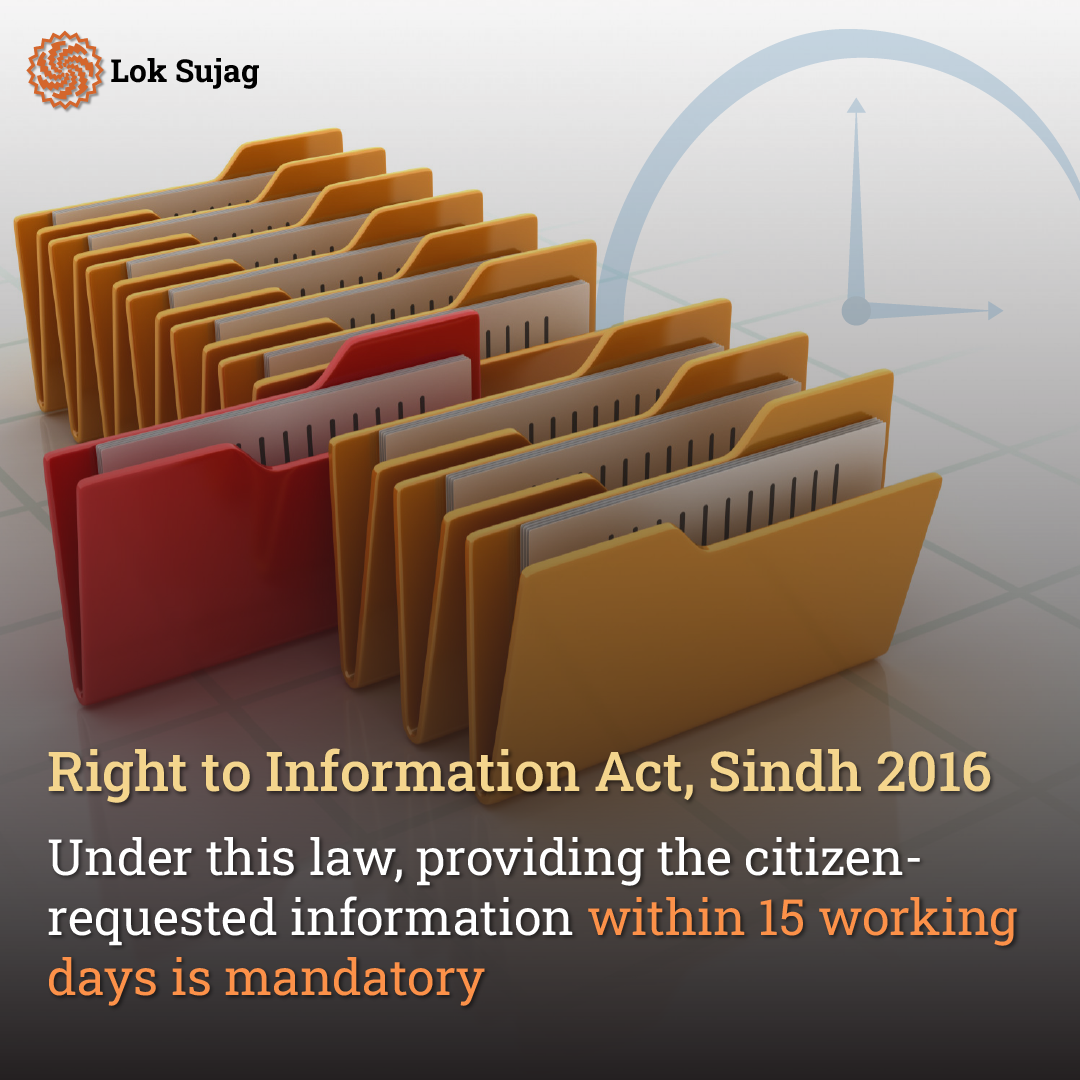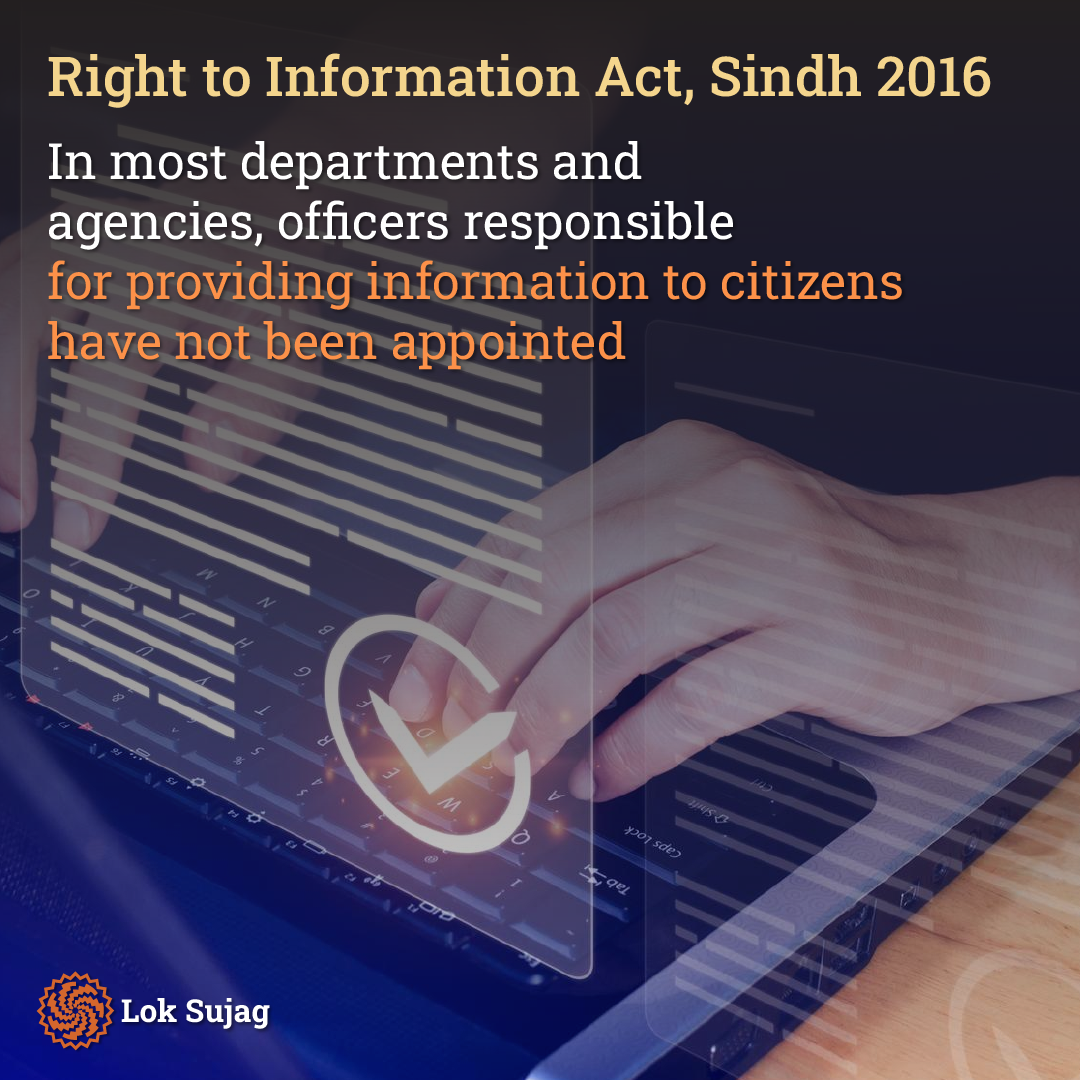Fifty-two years old, Imtiaz Masih is a Saint Joseph Colony, Hyderabad resident. He is an active member of human rights and serves as a ward servant at Shah Latif Hospital. He claims to have used the most the Right to Information Act.
He explains that under Article 19-A of the constitution, every citizen has the right to access information of public importance in all matters (subject to restrictions as per law). He claims to have fully exercised this right.
He says that over the past four years, they have submitted over three hundred information requests to various federal and provincial agencies and received responses to 90 of these requests. He uses the ‘Pakistan Post’ registered service to send their requests and keep the receipts safely.
After the eighteenth constitutional amendment, the Sindh Assembly passed the Sindh Transparency and Right to Information Bill (The Sindh Transparency and Right to Information Act 2016) on March 13, 2017. It became law on April 8, 2017, following the governor’s approval.
The Right to Information (RTI) Act states that to ensure the effective implementation of this law in the province, an ‘Information Commission’ will be established, and each government department will appoint at least one officer with a grade of 16 or higher to provide information to citizens. Their contact details will be made publicly available.

Under this law, government authorities must provide the requested information to citizens within 15 working days. If the information is not ready, the applicant will be informed of the progress within ten days. If the designated officer fails to provide this information within the specified time frame, the applicant will write to a senior officer regarding a request for an internal review.
In June 2022, the Sindh government established the “Sindh Information Commission” under the Right to Information Act 2016. However, most institutions and departments could not appoint officers responsible for providing information to citizens.
RTI Commission member Saima Agha explains that the Commission wrote a letter to the Chief Secretary Sindh in March 2023, informing that the RTI law was not being enforced because officers responsible for providing information to citizens were not appointed in most departments and institutions.
In June 2023, during the hearing of a case, the Sindh High Court also directed the Provincial Chief Secretary to provide an affidavit, ensuring the implementation of the RTI law. As a result, the Chief Secretary submitted an affidavit pledging to ensure the effective enforcement of the RTI law.

Saima Agha mentions, “When the Information Commission issued a notice to the Chairman of the Sindh Public Service Commission for not providing information, he was dissatisfied, asking how I was summoned. It was then explained to him that you need to appoint an officer for information access; otherwise, he will be called every time. So, an officer has now been appointed.”
He also mentioned that 50 provincial departments have appointed officers under the Right to Information law to provide information. However, if any government department or subordinate institution does not appoint an officer, the Chief Secretary of Sindh will be held accountable.
The Right to Information law specifies that if a citizen’s request for information is not fulfilled, they can appeal to the Sindh Information Commission and file a complaint.
Boota Imtiaz Masih had also filed a complaint against the Deputy Commissioner of Hyderabad with the Sindh Information Commission when he didn’t receive the information. The hearing for his complaint was scheduled for October 30, and he was informed about the presentation of all documents, including on October 13.

He explains that on May 24 of the previous year, he had inquired with the Deputy Commissioner of Hyderabad through a request, asking, “How many employees are there in the DC office? What are their annual salaries? How many vehicles are there? What are the annual expenses for the fuel and maintenance of these vehicles? What is the total area of the office? And what are the annual expenses for the utility bills of the DC House?”
He mentioned that he had waited for a response for 15 days. When he did not receive the information, he submitted a request to the Deputy Commissioner’s office for internal review. According to the law, he waited for 45 to 50 days yet still did not receive the information. Then, he approached the Information Commission against the Deputy Commissioner on October 2.
The Sindh Information Commission has already imposed a penalty on Waqas Abid Baloch, the Registrar of the Sindh Services Tribunal, in response to a complaint filed against him by citizen Faheem Ali for violating the RTI Act.
Also Read

Right to information challenges: A deep dive into Punjab’s transparency struggles
As per the decision, Waqas Abid Baloch’s monthly basic salary will be reduced by ten per cent. Copies of the decision regarding his income will also be sent to the Provincial Chief Secretary, Secretary of Finance, and the Chairman of the Sindh Services Tribunal for implementation. This decision was announced on September 7, 2023.
According to the records of the Information Commission, from June 2 last year to October 20, 2023, the Commission received 294 complaints in Sindh. Out of these, information has been provided for 155, and 48 are pending for a response. Additionally, 23 cases are in the decision phase.
The Information Commission has dismissed 68 complaints, many of which were due to legal requirements not being met, and others were against unrelated agencies (outside the jurisdiction of the Sindh Commission).
The Sindh Information Commission has received more than 15 complaints against the Department of Revenue for violations of the RTI law. Additionally, there are five complaints against the Sindh Public Service Commission, 20 against WASA Hyderabad, ten against Sindh Police, and more than 20 complaints against the Treasury Department submitted to the Information Commission.
In addition, the Sindh Information Commission has received complaints from citizens against Deputy Commissioners of Hyderabad, Mirpurkhas, and Tharparkar districts. Furthermore, the Commission has also received complaints from citizens against the most significant government office, namely the Chief Secretary’s Office, in the province.
Deputy Commissioner Tariq Qureshi, appointed in Hyderabad just a month ago, states that according to the Right to Information (RTI) law, information is provided to citizens. However, regarding the request from Boota Imtiaz Masih, he expressed his lack of awareness and mentioned that he would look into the matter.
Published on 31 Oct 2023


















